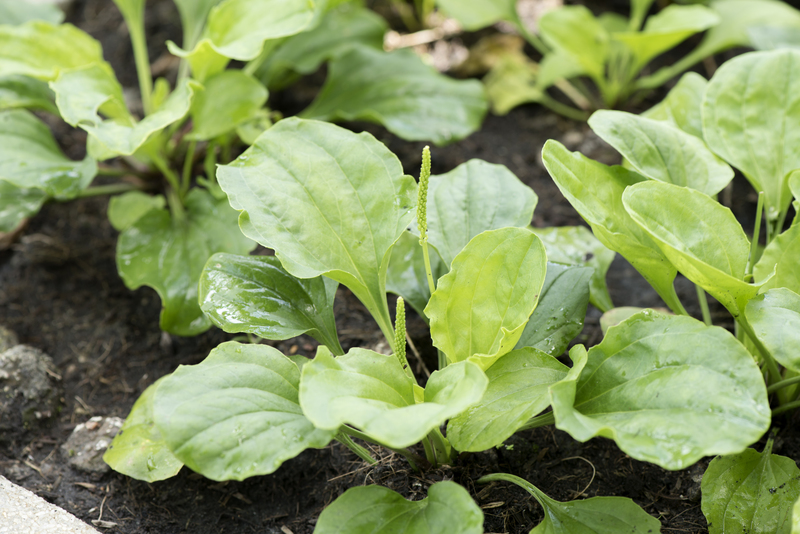Plant the seeds of success with these 9 gardening tips
Posted on 18/09/2025
Plant the Seeds of Success with These 9 Gardening Tips
Gardening is more than just a hobby--it's a rewarding journey that cultivates patience, encourages a connection with nature, and can even yield delicious or beautiful rewards. To help you plant the seeds of success in your garden, we've gathered nine essential, tried-and-true gardening tips that will empower both beginners and seasoned plant lovers. Whether you have a sprawling backyard or a cozy balcony, these practical insights will nurture your green thumb and ensure your garden flourishes season after season.
1. Understand Your Local Climate and Soil
The foundation of successful gardening is knowing your environment. Every plant has its preferences when it comes to climate, sunlight, and soil conditions. Before you even begin to plant, take some time to research your planting zone and the natural properties of your soil.
- Know your USDA Hardiness Zone: This helps you choose plants that will thrive in your garden's climate.
- Test your soil: Use a soil test kit to determine pH and nutrient levels. Many local cooperative extension services offer affordable testing.
- Amend your soil as needed: Add compost, mulch, or specific amendments based on your soil test for a richer planting bed.

2. Start with the Right Seeds or Plants
Selecting high-quality seeds or healthy starter plants is the next important step. Not every seed or seedling is created equal; look for reputable sources and pay attention to plant varieties that are recommended for your local area.
- Opt for disease-resistant varieties when possible to boost your garden's success rate.
- Check "days to maturity" labels to ensure the plant will have time to mature in your predicted growing season.
- Inspect seedlings for strong stems and healthy leaves before purchasing.
3. Perfect Your Planting Timing
One of the most overlooked gardening tips is to plant at the optimal time. Each crop or flower has a preferred season for sowing, which impacts its growth and productivity.
- Read seed packets carefully and use local planting calendars to determine when to sow seeds or transplant seedlings.
- Spring and fall are often the best times for planting, but some varieties thrive in summer or winter, depending on your zone.
- Start some plants indoors if you have a short growing season.
4. Don't Overcrowd Your Seeds
It's tempting to plant as many seeds as possible, but overcrowding leads to competition for nutrients, light, and water. When plants are too close together, they also face increased risk of fungal diseases.
- Always follow the spacing recommendations on seed packets or plant tags.
- Thin out seedlings early to give each plant room to grow strong and healthy.
5. Make Watering a Priority
Water is life for your garden. Both under- and over-watering can cause significant problems. To ensure gardening success, consistently water your plants based on their specific needs.
-
Water deeply, but less frequently.
- This encourages roots to grow deeper, resulting in stronger, more drought-resistant plants.
- Check soil moisture frequently--stick your finger an inch into the soil; if it feels dry, it's time to water.
- Morning is the best time to water to reduce evaporation and fungal diseases.
6. Use Mulch for Protection and Growth
Mulch is a gardener's secret weapon for retaining moisture, suppressing weeds, and regulating soil temperature. Adding a layer of organic mulch (like bark, leaves, or straw) around your plants can make all the difference.
- Mulch helps the soil retain moisture and reduces the need for frequent watering.
- It prevents weed seeds from germinating, keeping your garden tidy and your plants healthy.
- Organic mulches decompose over time, enriching your soil naturally.
7. Feed Your Plants the Right Way
Fertilizing might seem daunting, but providing the proper nutrients can dramatically improve your harvest and blooms. The key is balance and timing.
- Use a balanced slow-release fertilizer or compost based on your plants' needs and your soil test results.
- Fertilize at the right growth stages: fast-growing veggies and flowers often need more nitrogen early, while blooming and fruiting plants benefit from phosphorus and potassium.
- Don't over-fertilize. Excess nutrients can harm rather than help.
8. Prevent Pests and Diseases Naturally
Any successful garden can attract pests and suffer from diseases. With some thoughtful strategies, you can protect your plants naturally and avoid harsh chemicals.
- Encourage beneficial insects like ladybugs, lacewings, and bees for natural pest control and pollination.
- Rotate crops each year to minimize disease build-up in the soil.
- Remove diseased plants or leaves immediately to stop the spread.
- Hand-pick pests or use barriers like row covers for vulnerable crops.
9. Keep Learning and Experimenting
The true joy of gardening comes from constant learning and discovery. Every garden, season, and plant offers opportunities for new insights and surprises.
- Keep a gardening journal to record what works, what doesn't, and what you'd like to try next.
- Join community groups or online forums for sharing advice and learning from fellow gardeners.
- Try new plant varieties, arrangements, or techniques each season to keep your garden fresh and rewarding.
Bonus: Top Mistakes to Avoid When Planting the Seeds of Success
- Ignoring sunlight requirements and putting shade-loving plants in sunny spots (and vice versa).
- Forgetting to label seedlings and then mixing up plant locations.
- Overwatering or underwatering, which stresses plants and invites trouble.
- Using contaminated tools that spread diseases, so always clean your equipment between uses.
- Neglecting to check for pests regularly and losing crops overnight.

Why Planting the Seeds of Success in Your Garden Matters
A flourishing garden isn't just about pretty flowers or a bounty of vegetables--it's about cultivating wellbeing, sustainability, and personal fulfillment. When you follow these gardening tips and nurture your plants, you're also nurturing yourself--body and mind. Research shows that gardening reduces stress, boosts mood, and even encourages physical activity.
As you plant the seeds of success--both literally and metaphorically--you're creating a space for growth, reflection, and nourishment. Your efforts will blossom in unexpected ways, yielding benefits for you, your family, and even your community.
FAQs: Gardening Success Tips
- Q: What tools do I need to get started in gardening?
A: Basic tools like a trowel, gloves, spade, watering can, and pruning shears are perfect for beginners. As your garden grows, you can expand your toolkit. - Q: How do I know if my plant is getting enough light?
A: Observe your plant's growth. Leggy or pale plants often mean insufficient light. Move them to a sunnier location or choose varieties suited for shade. - Q: Can I garden successfully in containers?
A: Absolutely! Many vegetables, herbs, and flowers grow beautifully in pots. Ensure your containers have drainage holes and use a high-quality potting mix. - Q: How often should I feed my plants?
A: It depends on the plant and soil. Generally, once at planting and monthly thereafter for most veggies and flowers. Always follow package instructions.
Conclusion: Ready to Sow Your Own Garden Success?
With the right approach, anyone can plant the seeds of success in their garden. Start with these nine expert gardening tips and remember that patience, observation, and a willingness to learn are just as important as sunshine and soil.
Happy gardening! Your flourishing oasis awaits.
Latest Posts
Creating a Vibrant Environment Packed with Child Attractions
Exploring Creative Concepts for Garden Seating Layouts
Breaking Ground in Your Forgotten Garden Makeover

